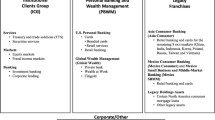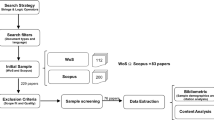Abstract
Knowledge management (KM) in project-based organizations has received substantial attention in recent years, as knowledge processes are insufficiently supported within the organization as a whole. This study specifically focuses on the project actor’s role in managing knowledge. From an actor’s perspective, the problems raised by knowledge embeddedness are identified as a key issue to link project knowledge and organizational knowledge. A conceptual framework is developed that addresses three different aspects of knowledge embeddedness: a relational dimension, a temporal dimension and a structural dimension. Three cases are studied, covering varying forms of organizations in different areas (a consulting firm, an R&D department and an industrial business unit). The results concerning the relational dimension indicate that project actors re-build the network of relationships supporting knowledge. Regarding the temporal dimension, and specifically in their professional field, actors frame professional knowledge related to their project experience. However, actors fail to surmount the problems raised by the structural dimension of knowledge embeddedness. The resulting recommendations for KM concern both Human Resource Management practices and organizational design.

Similar content being viewed by others
References
Ayas K and Zeniuk N (2001) Project-based learning: building communities of reflective practitioners. Management Learning 2 (3), 61–76.
Brady T and Davies A (2004) Building project capabilities: from exploratory to exploitative learning. Organization Studies 25 (9), 1601–1621.
Bredin K (2008) People capability of project-based organisations: a conceptual framework. International Journal of Project Management 26 (5), 566–576.
Bredin K and Söderlund J (2012) Project managers and career models: an exploratory comparative study. International Journal of Project Management 31 (6), 889–902.
Bresnen M, Edelman L, Newell S, Scarbrough H and Swan J (2003) Social practices and the management of knowledge in project environments. International Journal of Project Management 21 (3), 157–166.
Bresnen M, Goussevskaia A and Swan J (2004) Embedding new management knowledge in project-based organizations. Organization Studies 25 (9), 1535–1555.
Bresnen M, Goussevskaia A and Swan J (2005) Organizational routines, situated learning and processes of change in project-based organizations. Project Management Journal 36 (3), 27–41.
Brookes NJ, Morton SC, Dainty AR and Burns ND (2006) Social processes, patterns and practices and project knowledge management: a theoretical framework and an empirical investigation. International Journal of Project Management 24 (4), 474–482.
Brown JS and Duguid P (2001) Knowledge and organization: a social-practice perspective. Organisation Science 12 (2), 198–213.
Burgers H, Van den Bosch F and Volberda H (2008) Why new business development projects fail: coping with the differences of technological versus market knowledge. Long Range Planning 41 (1), 55–73.
Carlile PR (2004) Transferring, translating, and transforming: an integrative framework for managing knowledge across boundaries. Organisation Science 15 (5), 555–568.
Crozier M and Friedberg E (1981) L’acteur et le système. Les contraintes de l’action collective. Editions du Seuil, Paris.
DeFilippi R and Arthur M (1998) Paradox in project based enterprise: the case of film-making. California Management Review 40 (2), 125–139.
Eisenhardt KM and Graebner M (2007) Theory building from cases: opportunities and challenges. Academy of Management Journal 50 (1), 25–32.
Enberg C, Lindkvist L and Tell F (2006) Exploring the dynamics of knowledge integration: acting and interacting in project teams. Management Learning 37 (2), 143–165.
Fenwick T (2008) Understanding relations of individual-collective learning in work: a review of research. Management Learning 39 (3), 227–243.
Fernie S, Green S, Weller S and Newcombe R (2003) Knowledge sharing: context, confusion and controversy. International Journal of Project Management 21 (3), 177–187.
Foss NJ (2007) The emerging knowledge governance approach: challenges and characteristics. Organization 14 (1), 29–52.
Frank AJ and Ribeiro JL (2012) An integrative model for knowledge transfer between new product development project teams. Knowledge Management Research & Practice, advance online publication 17 December, doi:10.1057/kmrp.2012.57.
Frederiksen L and Davies A (2008) Vanguards and ventures: projects as vehicles for corporate entrepreneurship. International Journal of Project Management 26 (5), 487–496.
Gareis R (2010) Changes of organizations by projects. International Journal of Project Management 28 (4), 314–327.
Glaser B and Strauss A (1967) The Discovery of Grounded Theory. Aldine Publishing Company, Chicago.
Grabher G (2004) Temporary architectures of learning: knowledge governance in project ecologies. Organization Studies 25 (9), 1491–1514.
Granovetter M (1985) Economic action and social structure: the problem of embeddedness. The American Journal of Sociology 91 (3), 481–510.
Hällgren M and Wilson TL (2007) Mini-muddling: learning from project plan deviations. Journal of Workplace Learning 19 (2), 92–107.
Hatchuel A (2002) Coopération et conception collective. Variété et crises des rapports de prescription. In Coopération et Conception (de Terssac G and Friedberg E, Eds), 2nd édn, pp 101–112, Octarès Editions, Toulouse, France.
Hirst G, Van Knippenberg D and Zhou J (2009) A cross-level perspective on employee creativity: goal orientation, team learning behavior, and individual creativity. The Academy of Management Journal 52 (2), 280–293.
Hobday M (2000) The project-based organisation: an ideal form for managing complex products and systems? Research Policy 29 (7–8), 871–893.
Hodgson DE and Cicmil S (2007) The politics of standards in modern management: making ‘the project’ a reality. Journal of Management Studies 44 (3), 431–450.
Hsiao RL, Tsai SD and Lee CF (2006) The problems of embeddedness: knowledge transfer, coordination and reuse in information systems. Organization Studies 27 (9), 1289–1317.
Huang JC and Newell S (2003) Knowledge integration processes and dynamics within the context of cross-functional projects. International Journal of Project Management 21 (3), 167–176.
Jones C and Lichtenstein BB (2008) Temporary inter-organizational projects: how temporal and social embeddedness enhance coordination and manage uncertainty. In The Oxford Handbook of Inter-Organizational Relations (Cropper S, Ebers M, Huxham C and Smith Ring P, Eds), pp 231–255, Oxford University Press, Oxford.
Koners U and Goffin K (2007) Learning from post-project reviews: a cross-case analysis. Journal of Product Innovation Management 24 (3), 242–258.
Lam A (1997) Embedded firms, embedded knowledge: problems of collaboration and knowledge transfer in global cooperative ventures. Organization Studies 18 (6), 973–996.
Lam A (2000) Tacit knowledge, organizational learning and societal institutions: an integrated framework. Organization Studies 21 (3), 487–513.
Lave J and Wenger E (1991) Situated Learning, Legitimate Peripheral Participation. Cambridge University Press, New York.
Lindner F and Wald A (2011) Success factors of knowledge management in temporary organizations. International Journal of Project Management 29 (7), 877–888.
Lindkvist L (2005) Knowledge communities and knowledge collectivities: a typology of knowledge work in groups. Journal of Management Studies 42 (6), 1189–1210.
Lundin RA and Söderholm A (1995) A theory of the temporary organization. Scandinavian Journal of Management 11 (4), 437–455.
Newell S, Bresnen M, Edelman L, Scarbrough H and Swan J (2006) Sharing knowledge across projects. Management Learning 37 (2), 167–185.
Nonaka I (1994) A dynamic theory of organizational knowledge creation. Organisation Science 5 (1), 14–37.
Nonaka I, Toyama R and Konno N (2000) SECI, Ba and leadership: a unified model of dynamic knowledge creation. Long Range Planning 33 (1), 5–34.
Ordanini A, Rubera Gaia and Sala M (2008) Integrating functional knowledge and embedding learning in new product launches: how project forms helped EMI Music. Long Range Planning 41 (1), 17–32.
Osterloh M and Frey B (2000) Motivation, knowledge transfer, and organizational forms. Organisation Science 11 (5), 538–550.
Peltokorpi V, Nonaka I and Kodama M (2007) NTT DoCoMo’s launch of I-Mode in the Japanese mobile phone market: a knowledge creation perspective. Journal of Management Studies 44 (1), 50–72.
Peltokorpi V and Tsuyuki E (2006) Knowledge governance in a Japanese project-based organization. Knowledge Management Research & Practice 4 (1), 36–45.
Pemsel S and Müller R (2012) The governance of knowledge in project-based organizations. International Journal of Project Management 30 (8), 865–876.
Pettigrew AM (1990) Longitudinal field research on change: theory and practice. Organisation Science 1 (3), 267–292.
Pilbeam C (2013) Coordinating temporary organizations in international development through social and temporal embeddedness. International Journal of Project Management 31 (2), 90–199.
Raelin JA (2001) Public reflection as the basis of learning. Management Learning 32 (1), 11–30.
Rezania D and Lingham T (2009) Towards a method to disseminate knowledge from the post project review. Knowledge Management Research & Practice 7 (2), 172–177.
Salvato C (2009) Capabilities unveiled: the role of ordinary activities in the evolution of product development processes. Organisation Science 20 (2), 384–409.
Scarbrough H, Bresnen M, Edelman L, Laurent S, Newell S and Swan J (2004) The processes of project-based learning: an exploratory study. Management Learning 35 (4), 491–506.
Schindler M and Eppler M (2003) Harvesting project knowledge: a review of project learning methods and success factors. International Journal of Project Management 21 (3), 219–228.
Sense AJ (2007) Stimulating situated learning within projects: personalizing the flow of knowledge. Knowledge Management Research & Practice 5 (1), 13–21.
Sense AJ and Antoni M (2003) Exploring the politics of project learning. International Journal of Project Management 21 (7), 487–494.
Söderlund J (2005) Developing project competence: empirical regularities in competitive project operations. International Journal of Innovation Management 9 (4), 451–480.
Söderlund J (2008) Competence dynamics and learning processes in project-based firms: shifting, adapting and leveraging. International Journal of Innovation Management 12 (1), 41–67.
Söderlund J (2011) Pluralism in project management: navigating the crossroads of specialization and fragmentation. International Journal of Management Reviews 13 (2), 153–176.
Swan J, Newell S, Scarbrough H and Hislop D (1999) Knowledge management and innovation: networks and networking. Journal of Knowledge Management 3 (4), 262–275.
Swan J, Scarbrough H and Newell S (2010) Why don’t (or do) organizations learn from projects? Management Learning 41 (3), 325–344.
Sydow J, Lindkvist L and DeFilippi R (2004) Project-based organizations, embeddedness and repositories of knowledge. Organization Studies 25 (9), 1475–1489.
Szulanski G (1996) Exploring internal stickiness: impediments to the transfer of best practice within the firm. Strategic Management Journal 17 (Winter Special Issue), 27–43.
Tempest S and Starkey K (2004) The effects of liminality on individual and organizational learning. Organization Studies 25 (4), 507–527.
Von Krogh G, Nonaka I and Rechsteiner L (2012) Leadership in organizational knowledge creation: a review and framework. Journal of Management Studies 49 (1), 240–277.
Yin RK (2003) Case Study Research: Design and Methods, 3rd edn, Sage, Thousand Oaks, CA.
Author information
Authors and Affiliations
Corresponding author
Rights and permissions
About this article
Cite this article
d'Armagnac, S. Issues in the management of embedded knowledge in project-based organizations: the project actor’s role. Knowl Manage Res Pract 13, 446–462 (2015). https://doi.org/10.1057/kmrp.2013.62
Received:
Revised:
Accepted:
Published:
Issue Date:
DOI: https://doi.org/10.1057/kmrp.2013.62




